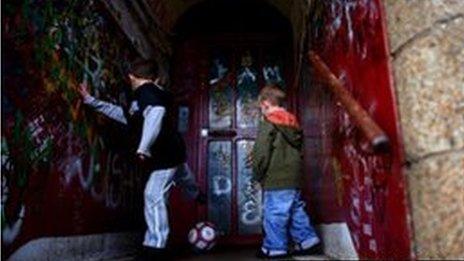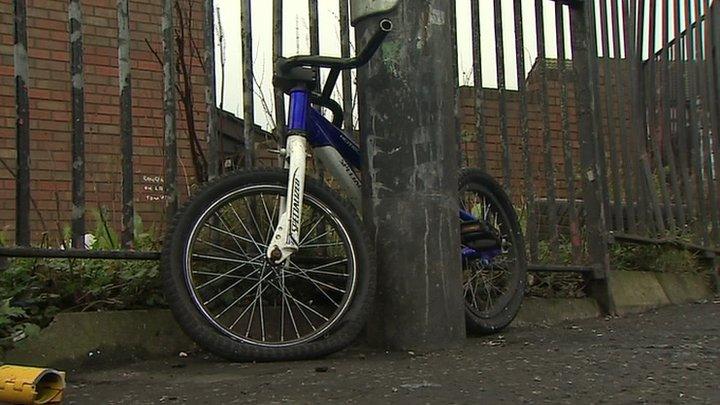Northern Ireland 'was hardest hit' during UK recession
- Published

The poverty figures show Northern Ireland suffered the largest rise during the recession, but when housing costs are considered, the overall poverty rate is far from the worst in the UK
Northern Ireland suffered the UK's largest fall in household incomes and the biggest rise in poverty during the recession, according to research.
The details are contained in report produced by researchers at the Institute for Fiscal Studies, on behalf of the Joseph Rowntree Foundation.
It shows that the typical household income in Northern Ireland fell by 8% during the recession, compared to a 2% fall in the West Midlands.
The research is based on official data.
It also shows that the percentage of households living in poverty - defined as living on 60% of a typical income - rose by more than 2%.
'Exacerbated'
The report states that Northern Ireland started from "a relatively low base" in the pre-recession period, with typical household incomes already 6.5% below the UK as a whole.
It adds that the recent falls have "exacerbated this disparity", leaving Northern Ireland 10.2% below the UK as a whole.
The report examines household incomes using both a "before housing costs" measure and an "after housing costs" measure.
Housing costs are mortgage and rental payments.
On both measurements, Northern Ireland suffered the steepest falls, though on the "after housing costs" measure the West Midlands, South East, Scotland and London saw incomes fall by by a similar proportion.
The poverty figures show Northern Ireland suffering the largest rise during the recession, but when housing costs are considered, the overall poverty rate is far from the worst in the UK.
On the "after housing costs" measure, London has the highest poverty rate at 29.1% compared to 21.7% in Northern Ireland.
That reflects the much higher housing costs in London compared to other parts of the UK.
- Published11 March 2014

- Published11 February 2014

- Published20 February 2013
